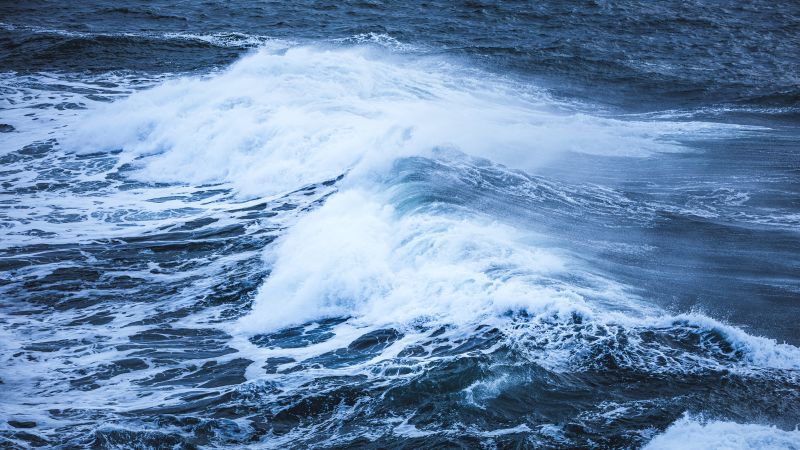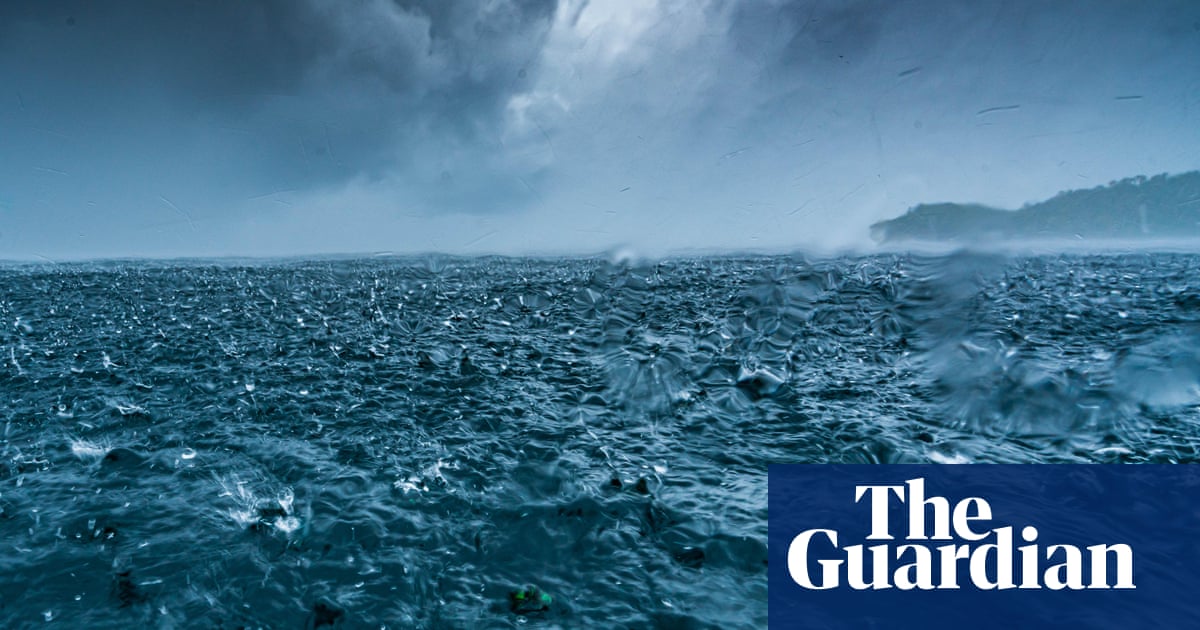
The Atlantic Meridional Overturning Circulation (AMOC) is a complex system that transports water, heat and nutrients throughout the Atlantic Ocean. It starts near the equator where surface of ocean is warmed by tropical sun and as it moves northward some of it evaporates which increases salt concentration (density) of remaining water. By time water nears Greenland it has cooled down making its density even more dense, this cold salty water sinks to seafloor pushing the other parts out of path. Displaced part flows south along ocean bottom and once returns to tropics is drawn back to surface through upwelling process which starts cycle again.

